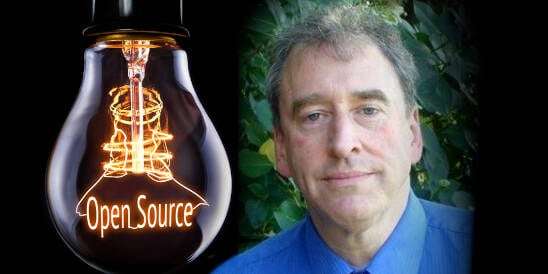Bruce Perens, one of the founders of the Open Source movement, is ready for what comes next: the Post-Open Source movement.
First of all, our licenses aren’t working anymore," he said. "We’ve had enough time that businesses have found all of the loopholes and thus we need to do something new. The GPL is not acting the way the GPL should have done when one-third of all paid-for Linux systems are sold with a GPL circumvention. That’s RHEL.



I’m part of that group. If OSI and FSF want to control the definition of something, they should make new and unique terms, not just attempt to take over a concept that predates both of them. (Interestingly, OSI’s website claims no one used “open source” to talk about software before 1998, and that’s patently not true; I remember seeing people use that in IRC channels back in the early 90s). If I came along tomorrow and said, “my org now controls the definition of ‘downloadable software’,” people would tell me to sod off. Even worse “Open Source” and “Free” are both terms with plain-English meanings (which most people naturally assume to be what people are calling “source available”, in OSS’s case). Trying to impose centralized control over a simple phrase isn’t really in line with the collaborative, community-led spirit of the FOSS community, imho
Call it OSI-Approved Zero-Restriction Licensing or something.
Funny, that’s how I feel about OSI stepping in to claim control of that term.
I agree with this for existing projects, absolutely.
Whether that term existed before it or not, that’s what people understand now. When talking about FOSS software, those definitions are what people expect - by a humongous wide margin. Calling those terms ‘generic’ is the weakest argument I have heard to dismiss the rigorous meaning people attach to it. Standards are centralized for a reason - so that everyone is on the same page. There’s nothing wrong with it. Claiming otherwise isn’t anarchy - it’s an intent to cause confusion*.
Trying to subvert those definitions and trying to pass of non-commercial as either Free software or Open source software are in my opinion, rather malevolent distortion of an existing paradigm meant to help only the companies that I mentioned before - those that want to exploit the FOSS ecosystem, but without making the necessary compromises. It’s an attempt to exploit a widely-held belief based on a rather vague and frankly misguided technicality.
Non-commercial sources already have an appropriate term - ‘source available’. It’s another generic term with a well-defined meaning. Hijacking the meaning of ‘open source’ and ‘free software’, instead of using this one is the perfect indication of the misleading nature of the hijack. And looking at the prevalence of this, I’m starting to suspect a widespread astroturfing/misinformation campaign.
Funny, they just used a generic term to mean something, while the exploiters use the term that means something to hide their true intentions and profiteer.